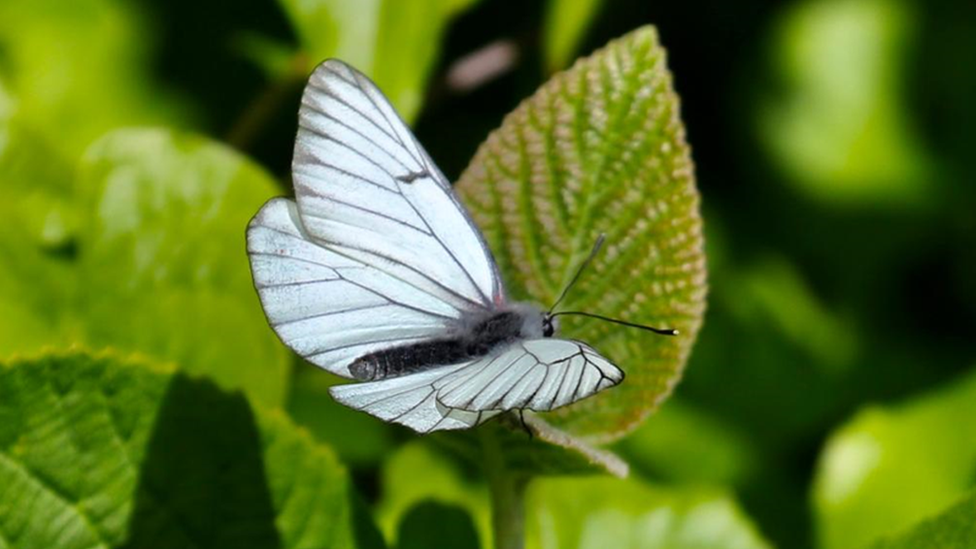Caterpillars struggle to survive climate change, says study
- Published
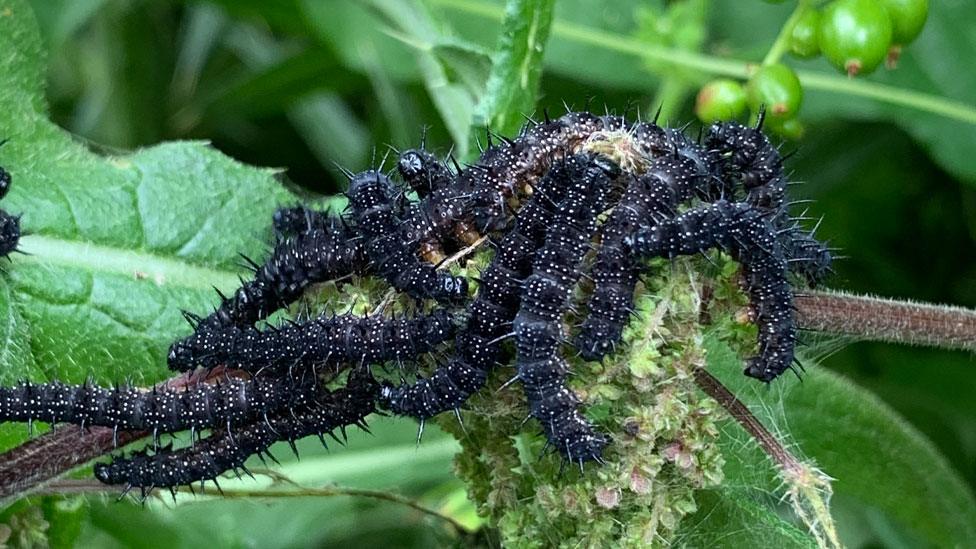
Caterpillars can get trapped on their food plants during heatwaves
Research on nature reserves and at an allotment has revealed how susceptible caterpillars are to climate change.
The University of Cambridge study found the larvae are "really bad at temperature regulation" making them less likely to survive extreme weather.
Dr Esme Ashe-Jepson said this could result in fewer "beautiful, charismatic butterflies", impacting on pollination and the birds which eat caterpillars.
The study took place in Bedfordshire and Cambridgeshire.
"We found that caterpillars are really bad at temperature regulation, unable to warm up when they get too cold or cool down when they get too warm," said Dr Ashe-Jepson, from the university's Department of Zoology.
"This means that if a heatwave occurs, they become trapped on their food plants, like an island - and they cook."
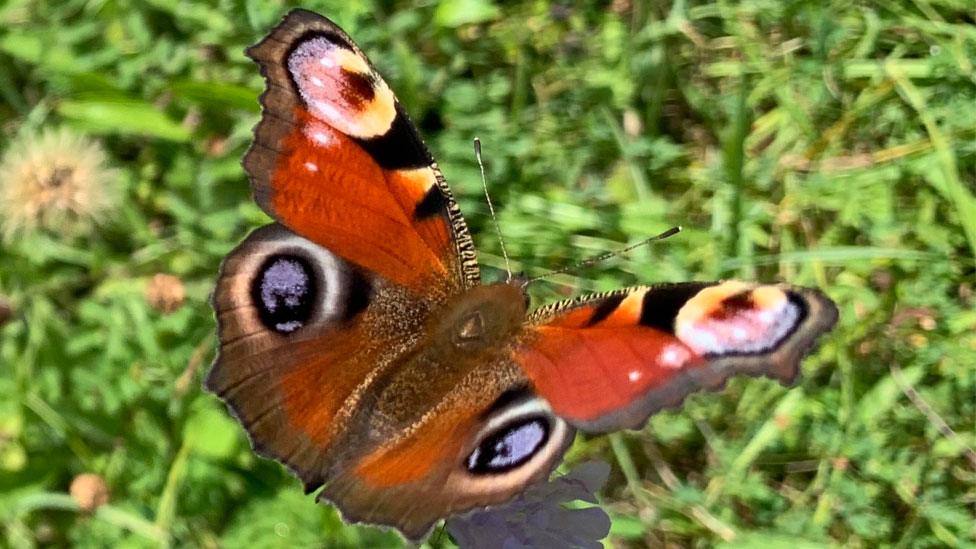
The study covered 12 species of butterflies, including the peacock (above)
Dr Ashe-Jepson began the research, published in Ecology and Evolution, external, because she realised there was "a huge gap in our understanding" relating to the impact of extreme hot and cold weather on larvae.
This was in the context of rising average temperatures and increasingly frequent and intense extreme weather events associated with climate change, she said.
The study suggested the best way to protect caterpillars from weather extremes was "to create microclimates and structure our green places so these animals can have a bit of shade".
"It doesn't need to be a massive tree, it could just be a foot strip in a garden with extra long grass," she said.
The data was gathered at Wildlife Trust nature reserves at Pegsdon Hills, near Hitchin, Hertfordshire, and Blow's Down and Totternhoe, both near Dunstable, Bedfordshire.
It focused on 12 butterfly species, including familiar ones like brimstone, red admiral and small tortoiseshell.
Data from large and small white butterflies, which do not breed on nature reserves, was gathered from an allotment in Girton, near Cambridge.
Dr Ashe-Jepson said: "Butterflies are part of our cultural heritage, beautiful and charismatic by themselves, but it's also about biodiversity.
"They are pollinators and food for birds - blue tits rely almost entirely on feeding caterpillars to their young."

Follow East of England news on Facebook, external, Instagram, external and X, external. Got a story? Email eastofenglandnews@bbc.co.uk, external or WhatsApp 0800 169 1830
- Published29 September 2023
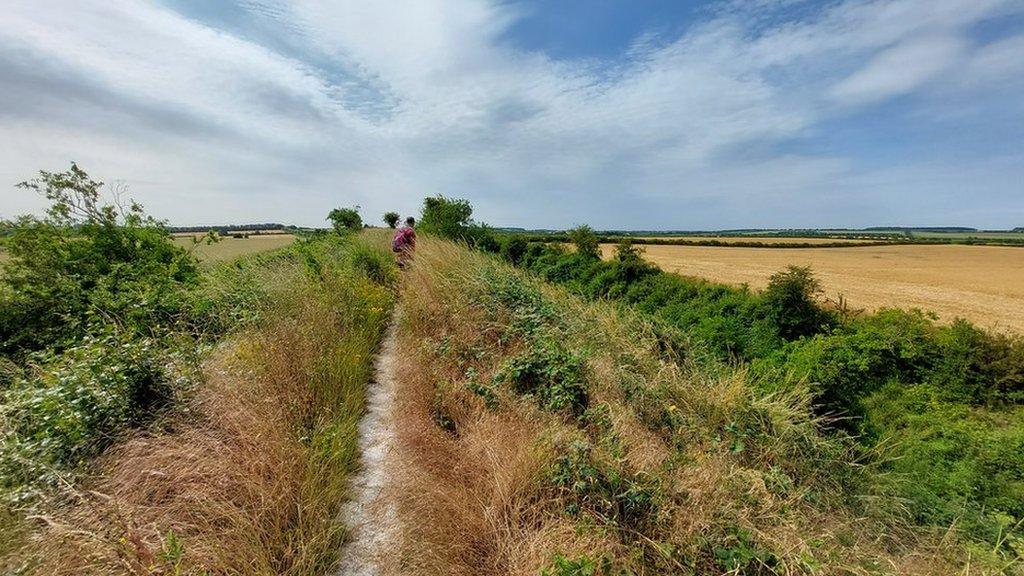
- Published18 September 2023
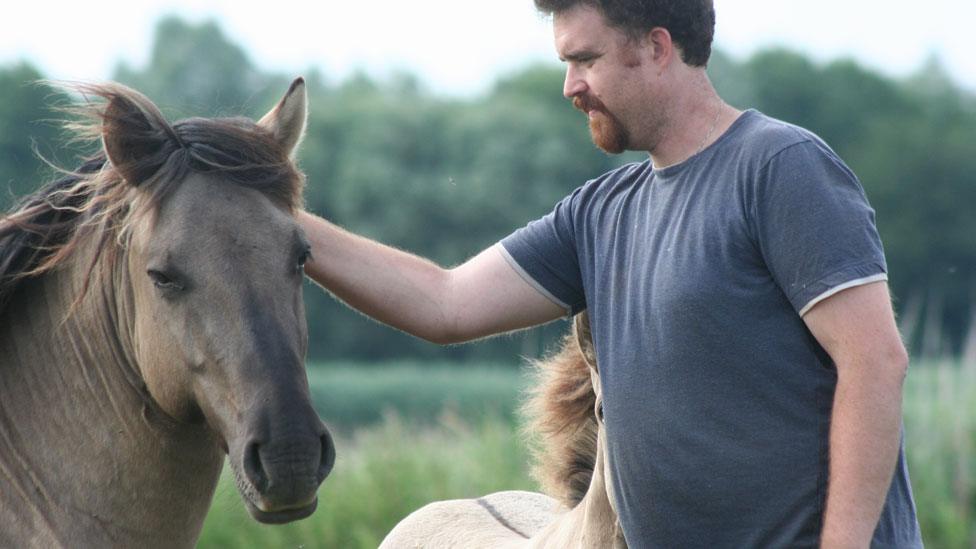
- Published15 September 2023
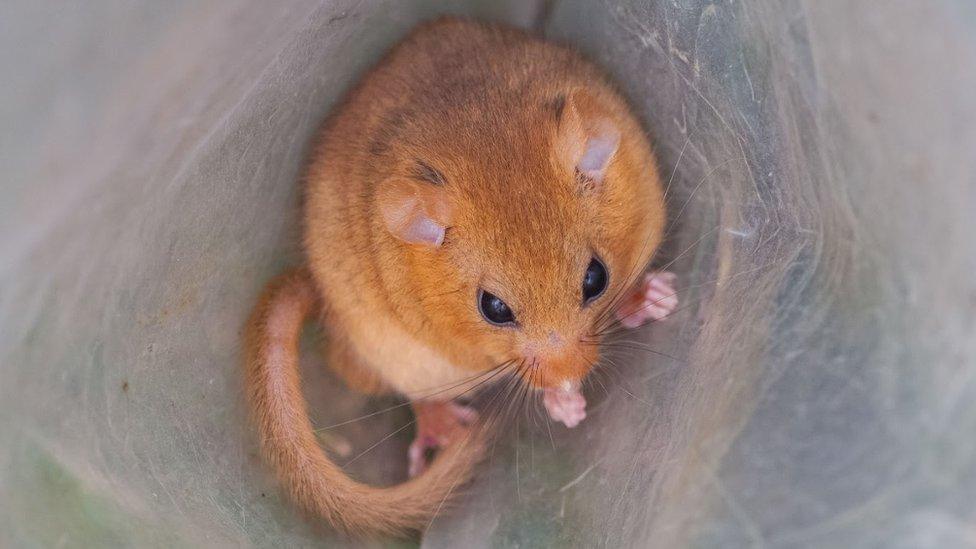
- Published22 June 2023
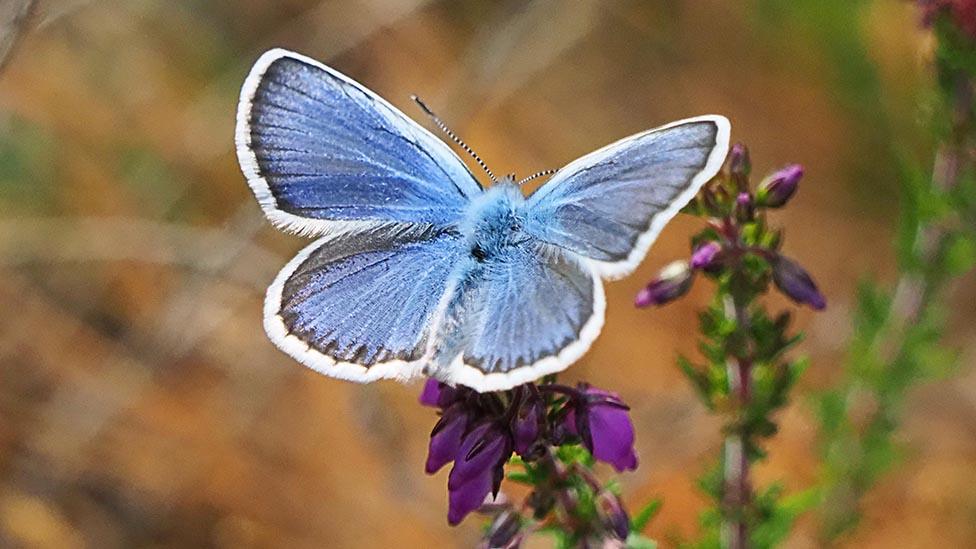
- Published10 June 2023
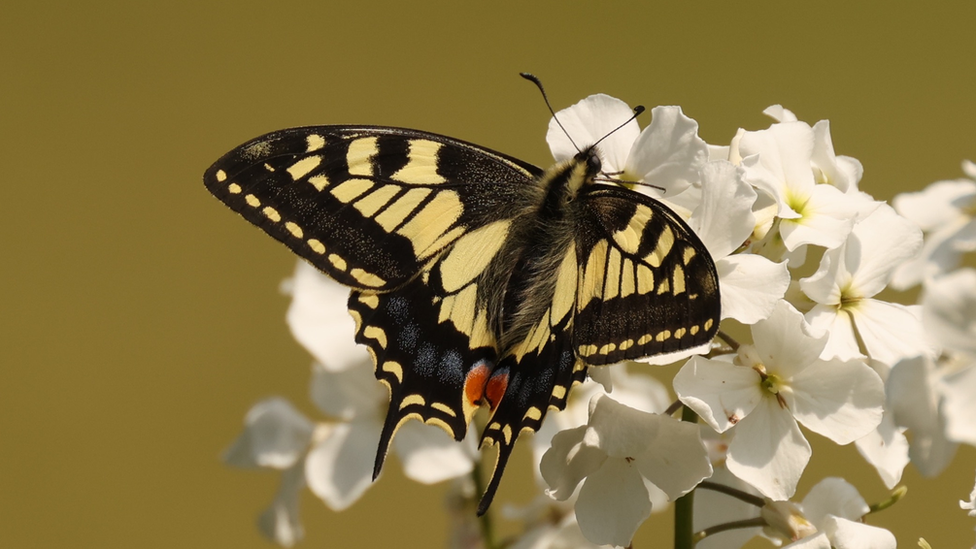
- Published4 June 2023
